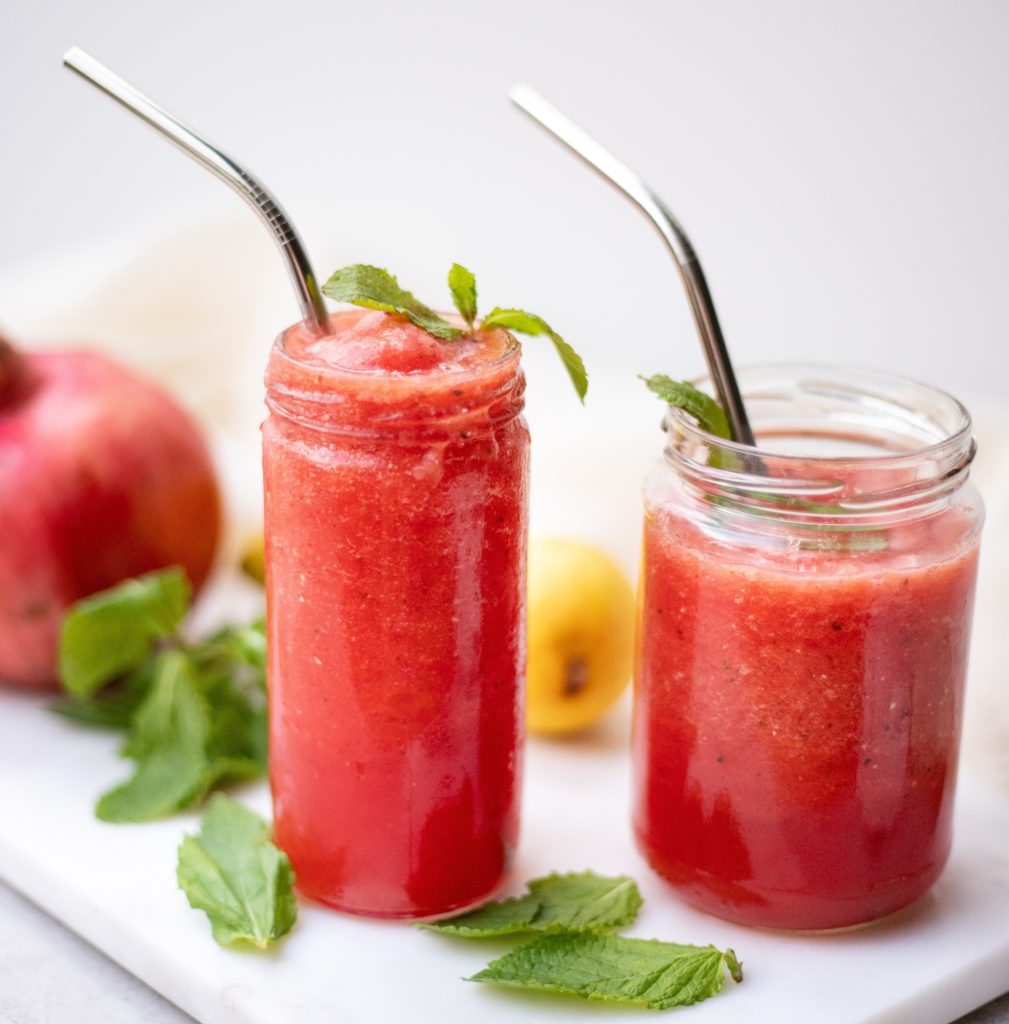Hold the Fruit Juice!

For many, a glass of fruit juice in the morning is thought to be part of a healthy breakfast. Children are often given fruit juice as a “healthier” beverage over sugary soft drinks. Yet it’s worth asking, are the concentrated sugars in fruit juice healthy?
Sugar Content of Fruit Juice Versus Soda
Sugar levels in fruit juice can be exceedingly high. In the average 8 ounce glass of soda, you consume 26 grams of sugar. That’s slightly over 5 teaspoons. Compare that level to what is found in some common fruit juices (Self 2021):
- Apple juice: 24 grams of sugar
- Orange juice: 22 grams of sugar
- Grape juice: 36 grams of sugar
- Pomegranate juice: 32 grams of sugar
- Cranberry juice: 31 grams of sugar
As you can see, some fruit juices have a higher sugar content than soda. Grape juice had the highest reported sugar content with more than 7 teaspoons of sugar per 8 oz. glass. It’s hard to imagine sitting down and eating 7 teaspoons of sugar, yet it’s very easy to drink more than 8 oz. of grape juice.
Risks of Fruit Juice
Diabetes
A study that combined research from 185,000 individuals found that whole fruit consumption lowered risks for diabetes, while fruit juice consumption raised the risks. Three servings per week of fruit juice increased the risk of diabetes by 8% (Muraki 2013). A larger study in 2015 found similar results, although they did state the findings on fruit juice may be somewhat biased (Imamura 2015).
Asthma

Other research has found that consuming sugary beverages, including fruit juice, can dramatically increase the risk of asthma. Consuming fruit juice 2-4 times per week increased asthma risk by around 60%. Interestingly, orange juice did not appear to affect asthma risk since it is lower in fructose than other fruit juices (DeChristopher 2018).
Cancer
Additional research has associated sugary beverage consumption, including fruit juice, with increased cancer risks. For every 100 mL (3.4 oz) of fruit juice consumed per day, overall cancer risk was increased by 12% (Chazelas 2019).
Weight Gain
Consuming fruit juice may also encourage weight gain. While eating whole fruit helps to decrease appetite, calorie-dense fruit juice does not appear to have the same effects (Flood-Obbagy 2009). Fruit juice is not filling and may allow for a larger consumption of overall calories.
Benefits of Fruit Juice
While there are plenty of studies that document specific benefits from fruit juice consumption, I generally recommend that a person would be better off consuming the whole fruit, fiber included, than drinking juice. Fruit juice does contain some nutrients. However, whole fruit is more filling and the sugar is absorbed more slowly, mitigating the problematic effects of the contained sugars.
Conclusion
Fruit juices contain a lot of excess sugar. In some cases, fruit juice has more sugar than soda. Research appears to indicate some negative effects from fruit juice, potentially on blood sugar, cancer risks, weight gain and asthma. In my opinion, fruit is best consumed as whole fruit, not as juice. It’s best to keep fruit juice as just an occasional sweet treat.



